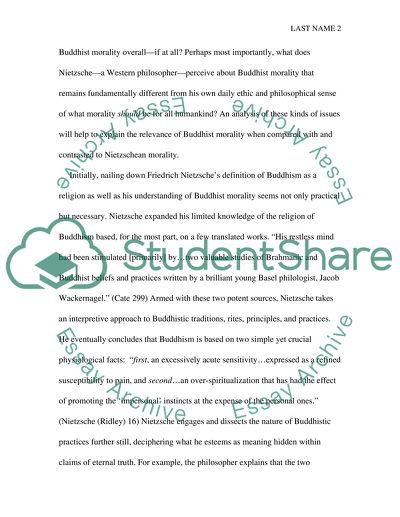On Morality: A Nietzschean and Buddhist Comparison Essay. Retrieved from https://studentshare.org/miscellaneous/1521696-on-morality-a-nietzschean-and-buddhist-comparison
On Morality: A Nietzschean and Buddhist Comparison Essay. https://studentshare.org/miscellaneous/1521696-on-morality-a-nietzschean-and-buddhist-comparison.


